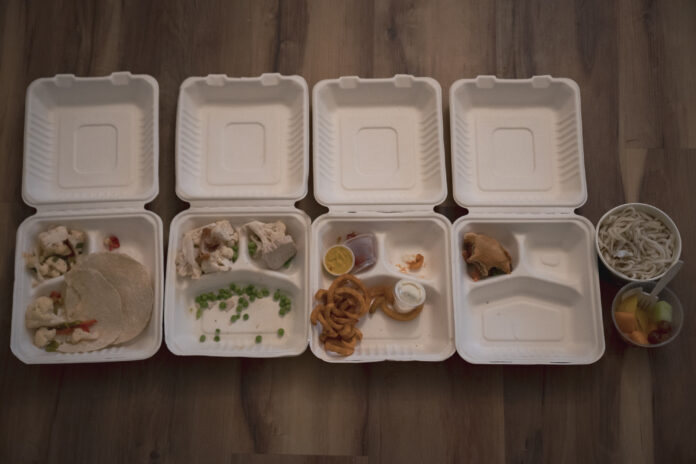Friday, Oct. 18, the University of Virginia Community Food Pantry hosted Virginia State Senator Creigh Deeds and Delegate Amy Laufer to discuss food insecurity on college campuses. Following this initiative, the College of William and Mary’s Food for All organization is slated to welcome Virginia State Senator Mamie Locke and Delegate Amanda Batten this November to emphasize the same issue and promote the bill’s passage in the General Assembly.
Food insecurity is often deemed the “invisible epidemic” of higher education. According to the U.S. Government Accountability Office, over one-third of college students nationwide face food insecurity and hunger. However, little legislation has been enacted to address this issue. Colleges across Virginia are uniting to advocate for a solution with the Hunger-Free Campus Act.
The Hunger-Free Campus Grant Program aims to alleviate food insecurity for college students by offering financial support to institutions to establish basic needs services. In this system, institutions would apply for funding through detailing how they would use the money to address food insecurity on their campuses. The Virginia Council of Higher Education for Virginia would then be responsible for approving the requests.
Student groups from several universities including UVA and James Madison University have already organized visits with state legislators, held campus tours and conducted letter-writing campaigns to build awareness and support for the bill.
In an email to the Flat Hat, Laufer provided a statement regarding the bill, emphasizing the urgency of addressing student food insecurity with new programs.
“Food insecurity is one of the most pressing challenges facing Virginia,” Laufer wrote to the Flat Hat. “College students, as young adults who are juggling the responsibilities of being a student while living and working independently for the first time, are uniquely vulnerable to experiencing food insecurity and yet have few resources available to help them. Accessible school-based initiatives, including food pantries and meal voucher programs like the ones I have been fortunate to learn about and tour, are vital to tackling the problem of student hunger.”
For students, access to essential resources such as food and housing is a foundational component of academic success. Hunger and related insecurities can have severe consequences, including higher dropout rates, mental health struggles and diminished academic performance. Students experiencing food insecurity are 3.5 times more likely to leave school compared to their food-secure peers.
Advocates argue that establishing a Hunger-Free Campus Act is not only a compassionate move but also an investment in the state’s economic future yielding a stronger workforce and reducing dependency on social services over time.
The push for Virginia’s Hunger-Free Campus Act has encountered obstacles, primarily due to budgetary concerns. In its most recent iteration, the bill was amended to replace its grant allocation with a State Council for Higher Education for Virginia-led study of food insecurity at public universities.
This change stripped short-term funding from the legislation, prompting disappointment among advocates and students who hoped for more immediate support.
Funding concerns have long been a challenge for advocates. According to the College’s Food for All organization, many college food pantries, including their own, operate without formal institutional support, relying on student leaders and community donations.
This lack of stable funding leaves student-run pantries struggling to keep up with rising demands and limits their ability to expand services. Food for All President Allisyn Lam ’25 explained why students need the state’s help when dealing with food insecurity.
“When students graduate, a lot of these clubs or programs die out if they don’t have strong leadership to keep it going,” Lam said. “Having a staff person here would be essentially somebody who’s going to be here for a long time, a lot longer than students are, and it would be their job to kind of do the work that we’re doing, because at the end of the day, we’re also students.”
This isn’t the first time students at the College have pushed for reform surrounding food insecurity. However, the lack of data surrounding university hunger has long been a barrier to enacting new policies.
Executive Director of UVA’s food pantry Eleanor Steiner shared why there has historically been a shortage of information around the issue.
“There is an incredible amount of stigma, and people don’t talk about it,” Steiner said. “So you’re not talking about it, so then people don’t know about it, and then that issue just blows up more and more. There is also this perception that’s like, ‘I’m not in need enough, I’m not food insecure enough, like I only had to skip one meal, but I knew I was going to get it.’”
Lam explained that students often don’t realize how big of an issue food insecurity is on campuses.
“It’s your classmates, it’s your research partners, it’s your mentors, it’s your bigs and littles,” Lam said. “There’s no one description that fits for all people who are food insecure. So you never really know until you kind of sit down and listen to people’s stories. It’s truly impactful what we’ve seen change, but we still know there’s so much more that needs to be done.”

